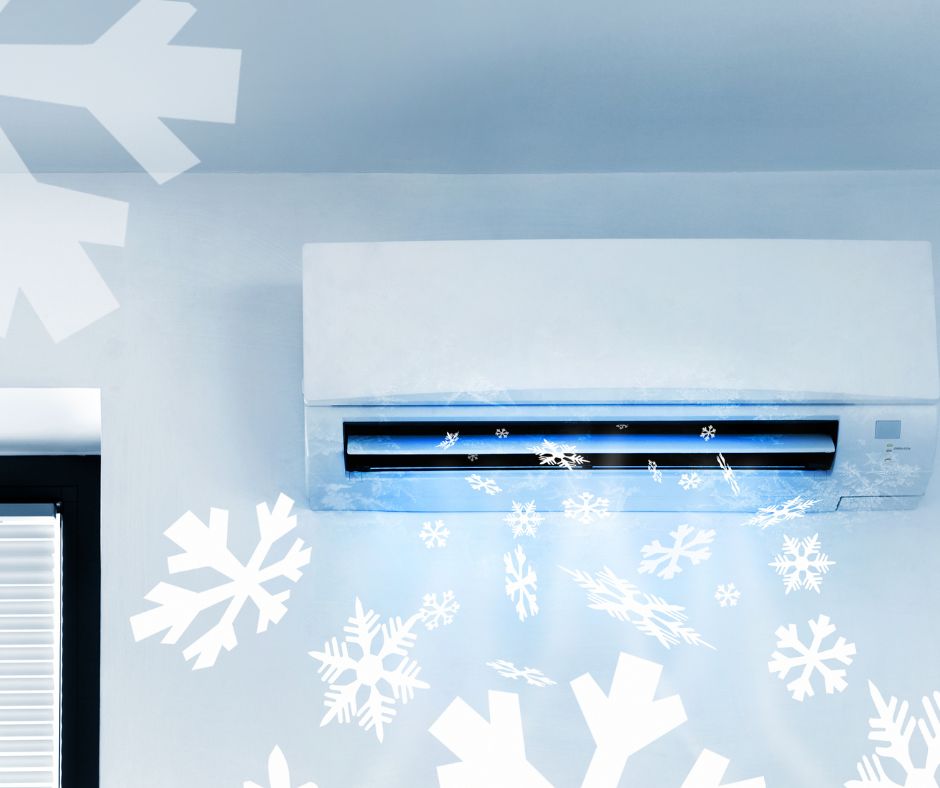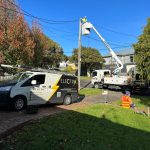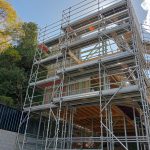Incorporating ultraviolet (UV) light into your HVAC system can significantly enhance the quality of your indoor air while simultaneously maintaining cleanliness within the system itself. UV lights effectively eliminate germs, mould, and various microscopic organisms that could compromise your health. By targeting and destroying these harmful agents before they circulate through your home, UV lights create a healthier living environment. Furthermore, they also work to neutralize unpleasant airborne odours, ensuring that your home remains inviting and fresh-smelling at all times.
Before making the decision to install UV lights, it’s advisable to carefully consider both the advantages and disadvantages. These lights can contribute to healthier air and extend the operational life of your HVAC system. However, they do require regular maintenance and represent an additional financial investment. If you or a family member struggles with breathing difficulties or you simply prefer a cleaner air environment, investing in UV lights could prove to be a beneficial choice for enhancing your home’s air quality.

Unlock the Health Benefits of UV Light in Your HVAC System
The implementation of UV lights within HVAC systems presents numerous advantages that can transform your indoor air quality. These lights not only purify the air but also enhance the system's efficiency and prolong its operational lifespan. UV lights have a proven track record in Australia, having been utilized for approximately 50 years in hospitals and other healthcare facilities. With advancements in UV lamp technology, these systems have now become suitable for residential HVAC applications, effectively neutralizing airborne bio-contaminants. Their chemical-free nature ensures that the installation poses no risk of sensitivities, making them a safe choice for families.
Enhance Your Home's Air Quality with UV Light Technology
UV lights are exceptionally effective at eradicating germs that tend to accumulate within your HVAC system. This includes various types of bacteria, viruses, and mould spores, all of which can adversely affect your indoor air quality. By targeting and eliminating these microorganisms, UV lights can lead to a remarkable improvement in the quality of air within your home. This is especially beneficial for individuals with allergies or respiratory complications, as cleaner air translates to a reduction in allergens and irritants. As a result, you may experience fewer instances of sneezing, coughing, and other allergy-related symptoms. Additionally, UV lights play a crucial role in preventing mould growth within your HVAC system, thereby eliminating musty odours and potential health risks associated with mould exposure.
Maximize Energy Efficiency in Your HVAC System
Integrating UV lights can significantly enhance the energy efficiency of your HVAC system. These lights play a vital role in keeping essential components clean, which is crucial for optimal performance. When dirt, dust, and microorganisms accumulate on the coils of your system, it forces the HVAC to work harder to regulate the temperature in your home. This increased workload leads to higher energy consumption and elevated utility bills. However, the presence of UV lights ensures that these components remain clean, facilitating smoother operation. Moreover, a cleaner system promotes improved airflow, allowing your HVAC to evenly distribute air throughout your living space, thus enhancing both comfort and efficiency.
By maintaining cleanliness in your HVAC system, UV lights can also contribute to its longevity. With less buildup on critical components, the wear and tear on the system is significantly reduced over time. This means that UV lights can decrease the necessity for frequent cleaning and maintenance, ultimately saving you money on service calls and repairs. Additionally, a well-maintained system is less prone to unexpected breakdowns, which can help you avoid costly emergency repairs and extend the overall life of your HVAC system. Remember to adhere to the recommended replacement schedule for your UV bulbs, as their effectiveness diminishes over time. Regular bulb replacement is essential to continue reaping the benefits of UV technology in your home.
Explore the Different UV Light Options for Your HVAC System
When it comes to UV lights for HVAC systems, there are two primary types available, each designed to target specific areas of your system to enhance air quality and efficiency. These two types offer distinct advantages that can optimize your home’s heating and cooling performance.
Coil Sterilization: Keeping Your HVAC System Components Clean
Coil sterilization UV lights are specifically designed to clean the evaporator coil of your HVAC system. These lights are strategically installed near the indoor coil, where they emit UV light directly onto the coil’s surface. This targeted approach effectively prevents the growth of mould and bacteria on the coil, leading to enhanced efficiency and improved air quality throughout your home. Coil sterilization lights operate continuously, providing constant protection against harmful microbial growth.
Air Sterilization: Purifying the Air You Breathe
Air sterilization UV lights are designed to target airborne contaminants as they flow through your HVAC system. Typically installed in your ductwork or air handler, these lights effectively purify the air by killing germs, viruses, and other microorganisms present in the airflow. This process can significantly reduce allergy symptoms and enhance overall indoor air quality. Air sterilization lights generally activate only when the fan of your system is running, ensuring efficient operation. For optimal performance, professional installation is often recommended.
Assessing the Effectiveness of HVAC UV Light Systems
The effectiveness of UV lights in HVAC systems can be gauged by their ability to eliminate microbes and enhance air quality. A thorough evaluation involves measuring light intensity, monitoring germ reduction, and analyzing airflow patterns within the system.
Understanding the Measurement of Irradiance for Optimal Performance
Irradiance refers to the power of UV light that reaches a surface, and it can be accurately measured using a UV meter or radiometer. For HVAC systems, the ideal intensity is typically between 50 and 100 microwatts per square centimeter. It's important to note that UV light strength diminishes rapidly with distance; therefore, placing sensors at various points in your ductwork is essential for obtaining precise measurements. Regularly checking these readings is crucial, as UV bulbs tend to lose intensity over time. Effectively designed UV systems can achieve a reduction in airborne bacteria by 25-30%, enhancing the overall health of your indoor environment.
Evaluating Costs and Economic Implications of UV Lighting in HVAC
Integrating UV light into your HVAC system entails both initial and ongoing expenses. While options in Australia are currently limited, the potential benefits and savings associated with these systems can outweigh the costs:
- Decreased energy bills resulting from improved HVAC efficiency
- Reduced repair costs due to cleaner coils and components
- Lower medical bills stemming from enhanced indoor air quality
It is essential to carefully balance these advantages against the costs in your individual circumstances. Keep in mind that the effectiveness of UV lights can vary based on factors such as your HVAC system's characteristics, the size of your home, and the climate conditions in your area.
Weighing the Advantages and Disadvantages of UV Lighting in Your Air Conditioning System
The introduction of UV lights into HVAC systems can yield both benefits and drawbacks. Here are some key considerations:
- Energy Consumption: While UV lights require electricity to operate, they can enhance the overall efficiency of your HVAC system. This improvement could potentially offset the additional energy consumption.
- Reduction of Chemical Usage: The utilization of UV lights may decrease the need for harsh cleaning products in your HVAC system, thus minimizing chemical waste.
- Disposal of Lamps: When UV bulbs burn out, proper disposal is necessary. Look for local recycling options to ensure environmentally responsible disposal.
- Enhanced Air Quality: UV lights can significantly improve indoor air quality, which may encourage less frequent opening of windows, helping to save on heating and cooling costs.
- Increased System Longevity: By maintaining a cleaner HVAC system, UV lights may contribute to a longer lifespan for your unit, resulting in less frequent replacements and reduced waste.
Achieve Superior Air Quality with Beyond Heating and Cooling Solutions
The continuous advancements in heating and cooling technologies are contributing to improved air quality in Melbourne homes. As households transition from gas heating to electric ducted heating and cooling, a positive impact is already being observed. Newer air conditioning models now feature superior filtration systems, including HEPA filters. The rising demand for UV lighting as an additional air purification method is evident, and at Beyond Heating and Cooling, we are dedicated to helping homeowners explore this beneficial option.


Your insights on the benefits of incorporating UV light into HVAC systems really resonate with me. I’ve been considering options to improve indoor air quality, especially as the colder months approach when we tend to spend more time indoors. The idea that UV lights can help eliminate not just germs but also mould is a game-changer for households, especially those with allergies or respiratory issues.
It’s great to hear that the insights about UV light in HVAC systems struck a chord with you. As you pointed out, indoor air quality becomes critical as we head into the colder months, making it essential to find effective solutions. UV light systems can indeed play a pivotal role in addressing these concerns.
I appreciate the insights on UV lights in HVAC systems. I’ve been considering an upgrade for my home, especially since my son has allergies that flare up with different seasons. It’s interesting how incorporating technology like this can make such a difference in our indoor air quality. The aspect of keeping the HVAC system clean and potentially extending its lifespan is also a huge plus.
It’s great to hear that you’re considering an upgrade for your home’s HVAC system, especially with your son’s allergies in mind. Managing indoor air quality is such a crucial aspect of creating a comfortable living environment, particularly when it comes to seasonal changes that can trigger sensitivities.
Your discussion about incorporating UV light into HVAC systems certainly sheds light on an often-overlooked aspect of indoor air quality. I appreciate the balanced overview you provided about the advantages and considerations of such technology. As someone who suffers from seasonal allergies and respiratory sensitivities, I’ve often wondered about the potential impact of UV lights on air quality in my home.
You bring up some essential points about the benefits of UV lights in HVAC systems. My family has a history of allergies, and I noticed a significant improvement in our indoor air quality after installing a UV light. The idea of reducing allergens while also keeping the system clean is appealing, especially since we spend so much time indoors.
It’s interesting to see how technology, like UV lights, is being integrated into our HVAC systems to improve indoor air quality. A few years back, my family began experiencing seasonal allergies, and we found that our indoor air quality was a huge factor in exacerbating those issues. After doing some research, we decided to invest in a UV light system, and I can honestly say it made a noticeable difference.
I completely resonate with the points discussed about UV lights in HVAC systems! We’ve actually had them installed in our home for about a year now, and I can genuinely say the air feels fresher and my family’s allergy symptoms have noticeably lessened, especially during peak pollen season. It’s fascinating how something as simple as UV light can have such a profound impact on indoor air quality.
Your insights into the incorporation of UV light in HVAC systems highlight some critical considerations for maintaining indoor air quality, which often gets overlooked in discussions about home environment. I’ve been researching the impact of air quality on health, especially for those with allergies or respiratory issues. It’s impressive how technology like UV lights can serve as a proactive measure in creating a healthier atmosphere, particularly for families with young children or elderly members who may be more susceptible to airborne pathogens.
Your exploration of the benefits and drawbacks of incorporating UV light into HVAC systems raises essential considerations that many homeowners might overlook. As someone who has experienced the struggles of maintaining indoor air quality, I understand the appeal of solutions that promise to neutralize allergens and pathogens. However, I think it’s crucial to dive deeper into the practical aspects and the broader implications of such a technology.
I’ve been really intrigued by the benefits of UV lights in HVAC systems ever since I read a study about how indoor air quality can impact everything from sleep quality to productivity. It’s a bit surprising to think that the air we breathe at home can be loaded with stuff we can’t even see.